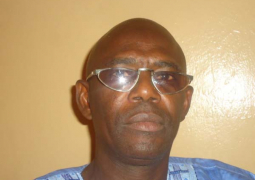State Counsel S.K. Jobe, along with State Counsel A. Sambou, told the court he was opposing the application made by the defence counsel to file a no-case submission.
The defence counsel, Lamin Darboe, said he was applying under section 166 of the CPC to make a no-case submission.
He argued that if at the close of the evidence in support of the charge, it appears to the court that a case is not made out against the accused person, sufficiently to require him or her to make a defence, the court shall, as to that particular charge, acquit him or her.
He further stated that this allowed the magistrate and himself, as the defence counsel for the accused person, to make the court to acquit the accused person.
Lawyer Lamin Darboe posited that “this is a longstanding practice”, adding that a counsel for an accused person could make this application to the court.
He adduced further that “it happens” at the magistrates’ court throughout The Gambia and also at the high court.
Defence counsel Darboe submitted that it was not necessarily the end of the case, but the accused person should be given the opportunity to make that particular application in the interest of justice.
He said the matter was being prosecuted by an able counsel from the Attorney General’s Chambers, adding that the state could no way be prejudiced by granting an application that is mandated by procedure.
Counsel Darboe therefore urged the court to allow the defence to make a written no-case submission.
State Counsel S.K. Jobe rose and told the court that they were vehemently opposing the application, adding that the application was incompetent and was unknown to criminal litigation in The Gambia.
He adduced that no-case submission or application is only made and competently granted in the case after the prosecution has closed its case.
He further posited that it was in record that the prosecution had closed its case and the accused person had started giving evidence in support of his case.
Therefore, he stated, the matter was at the defence stage, adding that the only prudent conclusion for the state at which the case was, was at the defence stage.
State counsel S.K. Jobe further argued that it was too late for the defence to make a no-case submission under section 166 of the CPC when the defence had started giving evidence.
He stated that section 166 of the CPC only avails the court or the defence to make a no-case submission before the accused person enters into the witness box to advance his defence.
“It is on record that the court took its precious time to explain to the accused person the option available to him at the end of the prosecution case. The court has the law at its bossom and it is aware of section 166 of the CPC at all material time,” State counsel Jobe argued.
He further posited that the court would have made or invoked section 166 of the CPC that the prosecution had not adduced or made a case against the accused person.
State counsel Jobe argued further that the court, with its wisdom, was convinced that the prosecution had made a case against the accused person, and allowed him to enter his defence.
“Allowing this application would suggest to every reasonable person that it is a miscalculation of the court for requiring the accused person to enter his defence. It would be tantamount to self-contradictory decision made by the court,” he said.
Therefore, he went on, they urged the court to disallow the application made by the defence, since it does not have any place in the case.
State counsel Jobe further posited that the defence counsel had time to disprove the allegation made against the accused person, since the burden required proof beyond reasonable doubt.
The case was adjourned till 18 May 2016, for
ruling.
Read Other Articles In Article (Archive)
Diabetes disease in The Gambia
Jul 28, 2015, 12:23 PM
Boost for RVTH children’s ward
Feb 9, 2011, 12:14 PM


